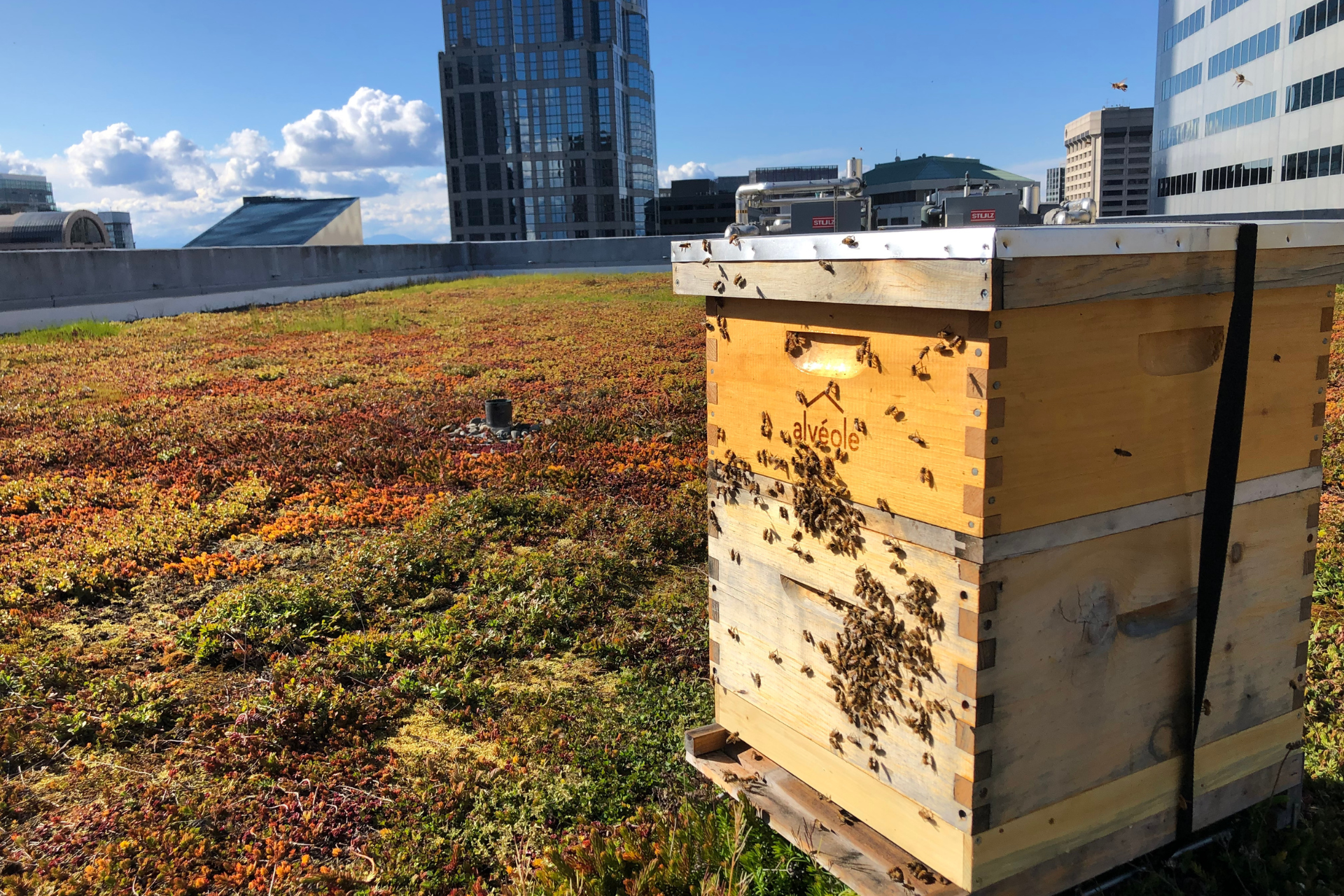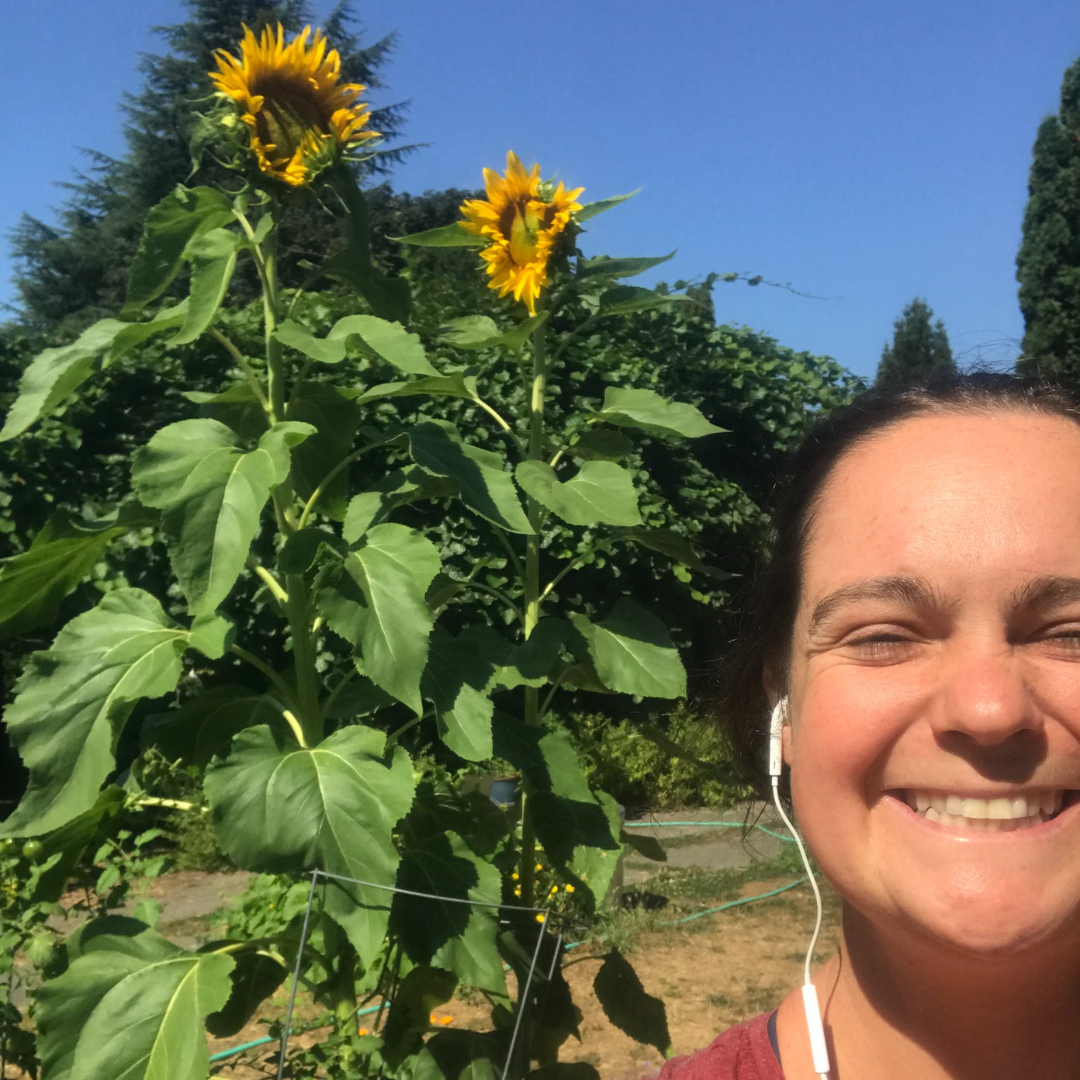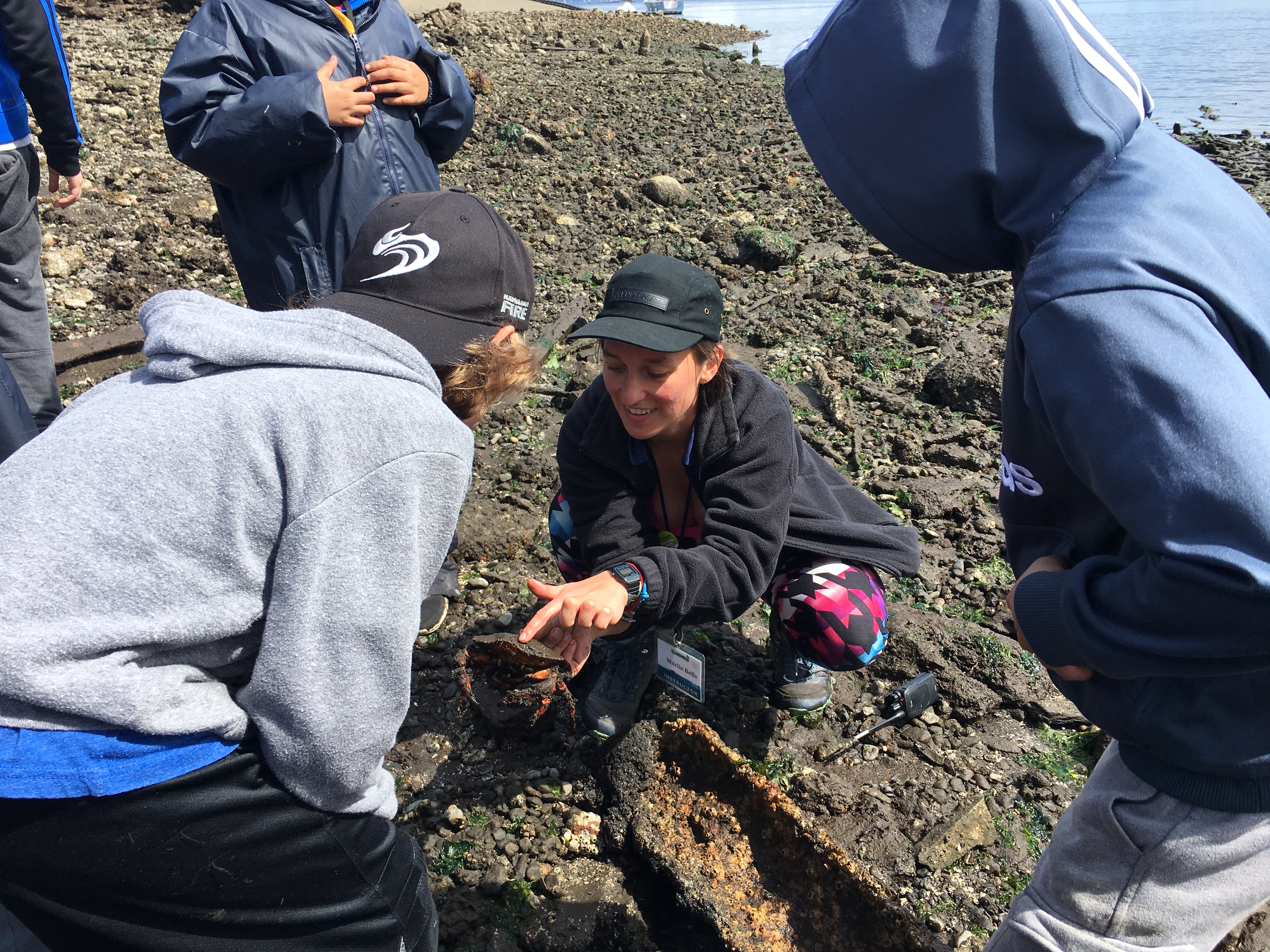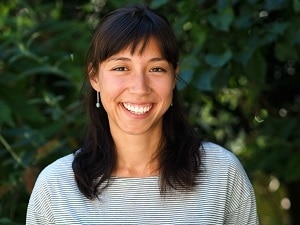We are working to share more stories from IslandWood alum, and to kick it off,…
Annie Reading, Class of 2017 shares a bit of what she’s been up to since graduation!
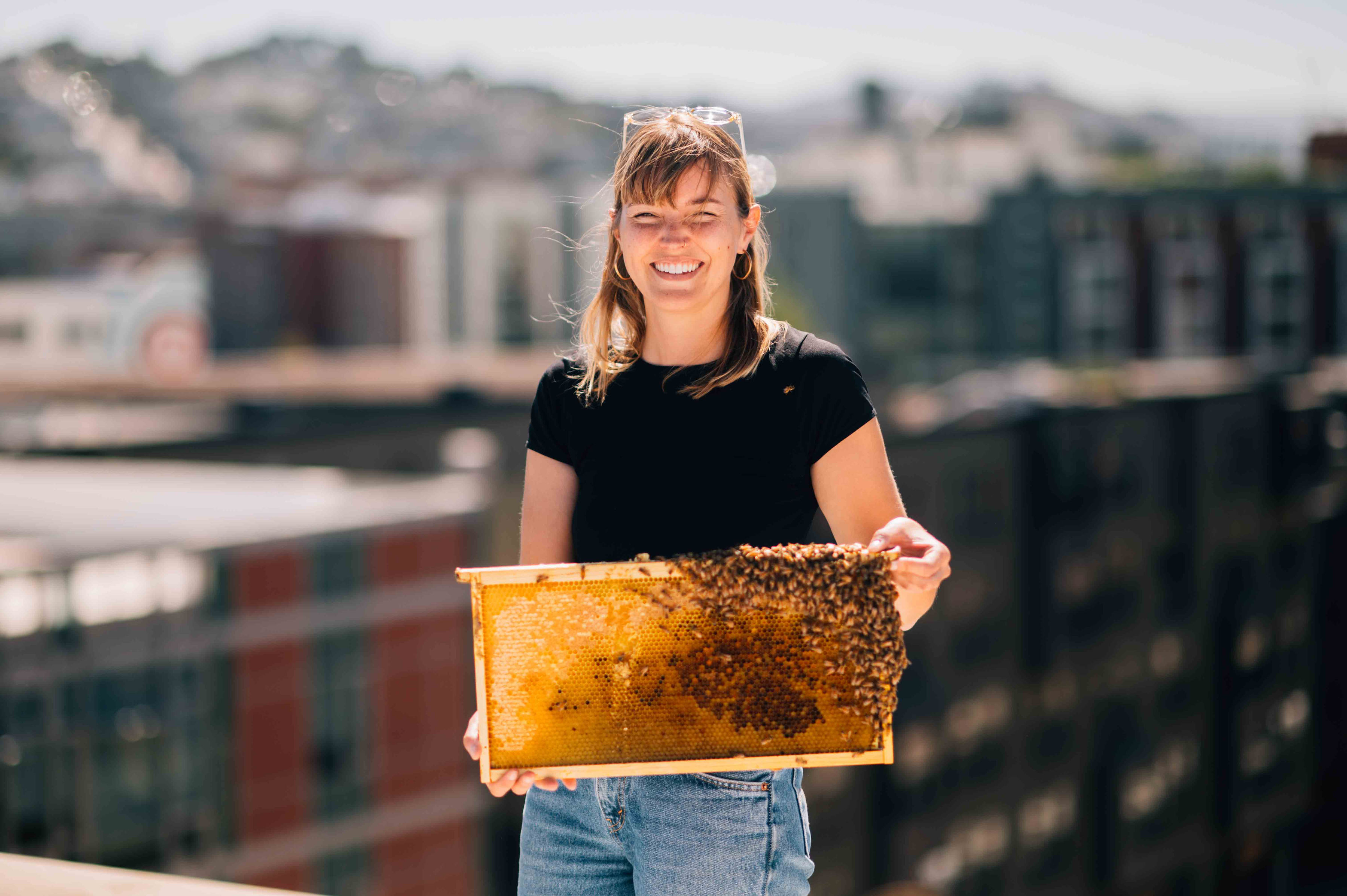
Annie Reading, EEC Class of 2017, with a hive of rooftop bees.
What are you up to professionally these days?
I currently work for a company called Alvéole, which provides environmental engagement opportunities to institutions in urban areas across North America and Europe. One of the main ways we do this is by introducing people to the magic of honeybees, something I discovered myself at the IslandWood Garden! We install hives at schools, office buildings, apartment complexes, and community organizations. Then throughout the year, we tend to the hives and facilitate educational workshops on honeybees and other pollinators, as well as hands-on activities like candle making and harvesting honey! I am the Lead Beekeeper for our Seattle and Portland teams, which means I set the beekeeping strategy and principles for a team of beekeepers (including another IslandWood alum, Ben Berrick) who manage around 120 hives across the region. I train the team in honeybee care and maintenance through the seasons, provide mentorship in beekeeping and environmental education, and manage an apiary where we keep the hives that aren’t currently on client sites. And, perhaps most special of all, I am the dedicated beekeeper at the schools where two of my dearest friends, Jessie Ryan and Mó Mesquita, who I met on our first day of the IslandWood grad program, are teachers! It’s so delightful to have this opportunity to regularly collaborate with these brilliant educators and friends, much like we did when we were at IslandWood.
Is there anything particular about your IslandWood experience that you’re leaning on or leveraging in your current work?
I could probably think of a hundred answers to this question! Here are a couple:
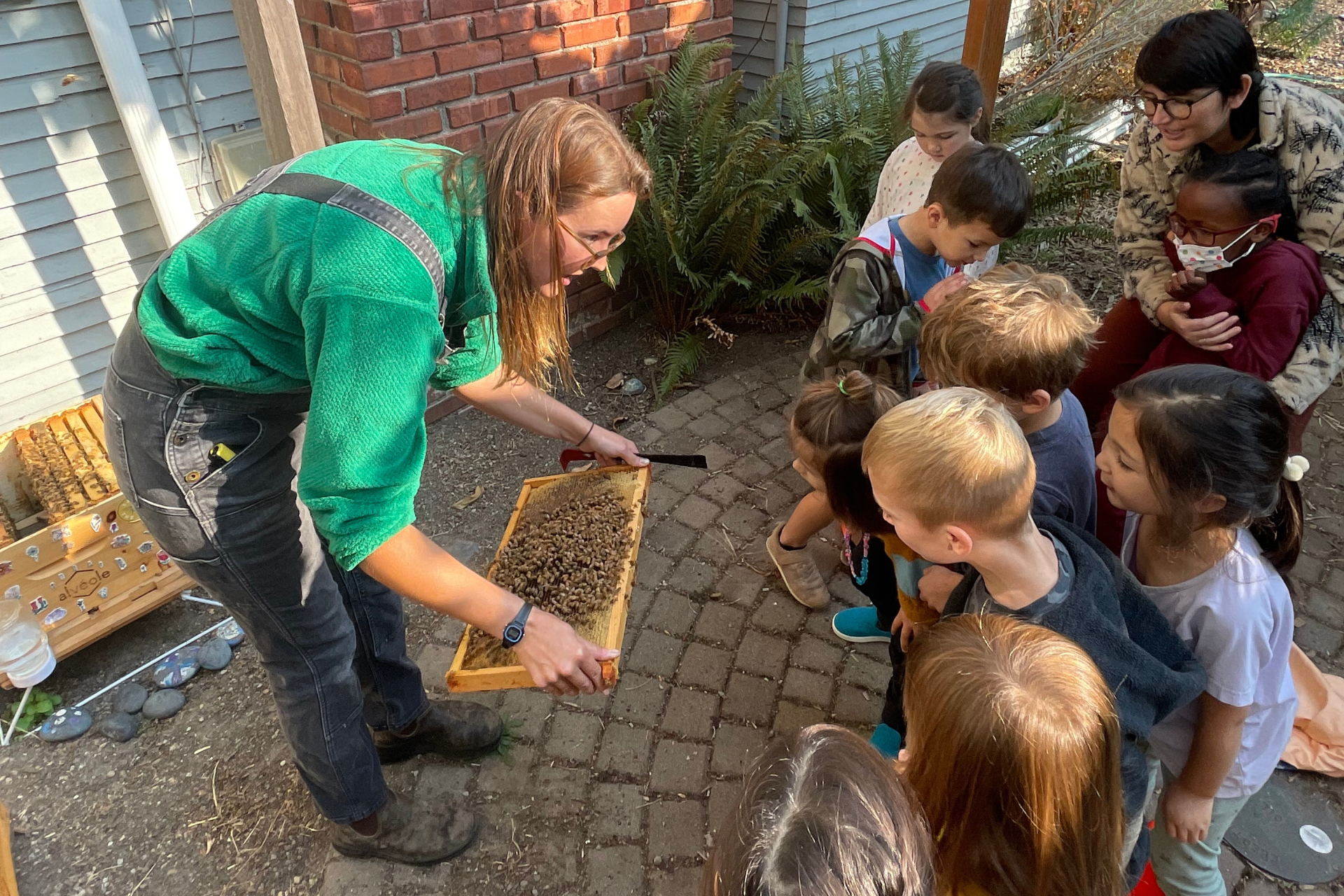
Annie Reading, dedicated beekeeper at an elementary school in Seattle, with Mó Mesquita (another IW Alum!), showing students the bees.
In many ways, my current work feels like a hyper-specific example of the kind of learning experiences IslandWood provides every day. I don’t have a big forested campus to spark curiosity and nature connection for people, but I do have the complex and fascinating world inside a beehive. The experience of interacting with honey bees up close tends to stick with people; they are truly awe-inspiring teachers. My hope is that as people learn about and develop a personal relationship with this one particular species, their wider environmental awareness and involvement will grow too. Pollinator stewardship dovetails with so many other critical environmental and justice issues: habitat restoration, plant biodiversity and richness, pesticide regulation, water protection, food sovereignty, and so much more. Honeybees have sparked or deepened my engagement with each of these issues, and it all started while I was a grad learning from Jen Prodzinski and Charles Schafer in the IslandWood Garden.
Another takeaway from IslandWood that I carry every day is a deepened attention to the richness of urban ecosystems. We are always operating within ecosystems, wherever we go, and all ecosystems can be sites of deep connectedness–with place, plants, animals, and people. Bees are such powerful reminders of this. I oversee hives that are on top of buildings downtown, and these bees collect pollen and nectar and make honey just as well as the bees I manage in more rural areas. It amazes me. A colony’s foragers know the city so very well, traveling miles of it each day to seek and find flowers in public parks, urban gardens, patios, cracks in the sidewalk, green roofs, vacant lots, and so on. And at the end of their journeys, they come back and share what they experienced with their colony so the others can find the best foraging locations too (if you don’t believe me, look up “the waggle dance”). Bees are wonderful role models for how I want to live, and how I learned to think at IslandWood: with deep attention and commitment to environment and community.
Learn more about IslandWood’s Graduate program here.
Are you an IslandWood alum? Want to share a Q&A with us? We’d love to hear from you and share what you’ve been up to! Email us at [email protected].
If you haven’t already, subscribe to our newsletter to stay in the know about blog posts, news, and events!Bee

